The content of the article
Flax oil is a very useful, but capricious product. It contains omega-3 acids more than olive, sunflower, corn and other oils. It is this property that creates difficulties in its storage due to rapid oxidation. So that the product does not lose most of its medicinal properties and has been stored for longer, you need to know a few secrets.
The benefits of flaxseed oil
Today, many doctors recommend this product as a remedy for all diseases. But it's hard to believe that one oil can solve all health problems right away. Of course, it is not. To cure a disease, you need to approach it comprehensively, and not just with the help of one means.
But still flaxseed oil is of great benefit to the body. In composition, it is similar to fish oil and has alpha-linolenic acid and omega-3 polysaturated fats.They reduce cholesterol, normalize the work of the heart and the digestive system, help lose weight, make hair and nails strong, and fight against skin fading.
Who can and who can not drink flaxseed oil
Today, lovers of natural products and young girls, after reading about the beneficial properties of flaxseed oil, run to the pharmacy and buy it in the hope that it will make them healthy, young and beautiful.
But it does not always meet their expectations. Flaxseed oil does not help everyone, and if you drink it without consulting with a therapist, it can hurt.
Indications:
- diseases of the cardiovascular system;
- gastrointestinal tract diseases;
- dysfunction of the thyroid gland;
- diabetes;
- diseases of the nervous system;
- reduced immunity;
- metabolic disorders;
- impotence.
Despite the fact that flaxseed oil is a dietary supplement, it is a very powerful tool, the reception of which will affect the condition of the whole organism. Therefore, you need to know all the pros and cons that occur when taking it.
Contraindications:
- individual intolerance;
- urolithiasis disease;
- dysfunction of the pancreas;
- pancreatitis;
- hepatitis;
- atherosclerosis;
- enterocolitis;
- gynecological diseases;
- pregnancy and lactation;
- taking antiviral and sedative drugs;
- blood diseases.
Studies also show that flaxseed oil contains phytoestrogens, which can affect the effectiveness of taking oral contraceptives. Do not be lazy to read the instructions before you assign yourself a course of flaxseed oil.
Rules of application
Starting to use should be very careful. The body has to get used to it and only then it is possible to increase the dose. In the first week of admission, many noted nausea and slight dizziness, which passes as they get used.
Linseed oil intake regimen:
- 1 week: 5 ml in the morning on an empty stomach.
- 2 week: 10 ml in the morning on an empty stomach.
- Week 3: 10 ml in the morning on an empty stomach and a quarter of an hour after dinner.
- 4 and the following weeks, 10 ml three times a day.
If in the first 10 days you begin to experience discomfort, such as pain in the abdomen or sides, tingling, allergy begins, then the intake of oil should be stopped.
Full course is 90 days.During this time, all body functions will improve, the walls of blood vessels will strengthen, and immunity will increase. The next technique should be done no earlier than six months after the end of the previous one.
Flaxseed oil can be added to cold dishes. To fry and fill them hot porridge is not recommended. So it will immediately oxidize, lose its beneficial properties and free radicals harmful to health will begin to form in it. Also, do not forget about the specific taste of this product, not everyone can tolerate it in the composition of the dishes. Therefore, many people prefer to take it separately with a glass of cool water.
If you are interested in the cosmetic, rather than medicinal properties of the oil, then it is advisable to add it to homemade recipes instead of drinking. So you definitely do not harm health and get long hair and velvety skin.
Storage rules
To preserve the benefits of flaxseed oil until the end of its use, it is necessary to observe some subtleties. Otherwise, you will not get the desired result.
How to store flaxseed oil:
- Always purchase a product in a dark glass or plastic container. Light destroys fatty acid compounds.
- Buy it in trusted stores or pharmacies, where you are sure that it was stored properly. Do not buy linseed oil for bottling.
- The product should be made only by cold pressing.
- Always keep the bottle tightly closed to prevent air from entering it. So the oil will quickly oxidize and carcinogens will be produced in it.
- It should be stored in the refrigerator, as it warms quickly in the heat. The best place to store oil is the refrigerator door.
- The shelf life is 8 months, unless other information is written on the label.
- After opening, the oil is stored for 1 month, so it makes no sense to buy it in large volumes.
- Understand that the oil is gone, you can on the rancid sourish taste. The fresh product has a nutty flavor and a slightly bitter taste.
- In no case do not leave the bottle in the open sun, so the product within half an hour will completely lose its properties.
- Oil is added to dishes before serving. After that, the food should not be stored in the refrigerator, but immediately eaten.
- When eaten or for cosmetic procedures, never heat the oil or add it to hot dishes.
Remember that free radicals, carcinogens and other substances formed in flaxseed oil with improper storage and expired shelf life are dangerous for the body.
If you monitor your health, lead an active lifestyle and choose healthy food, then flaxseed oil will become an indispensable product in your kitchen, as an addition to salads and cereals, and as a means to maintain youth and beauty.
Video: how to apply, select and store flaxseed oil

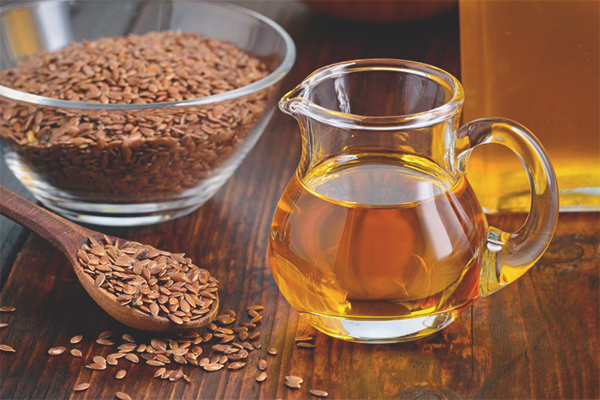
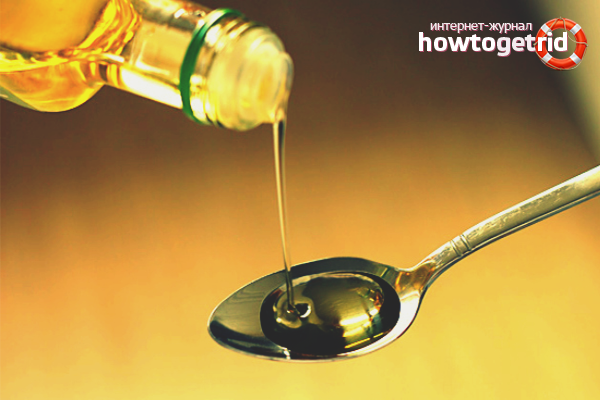
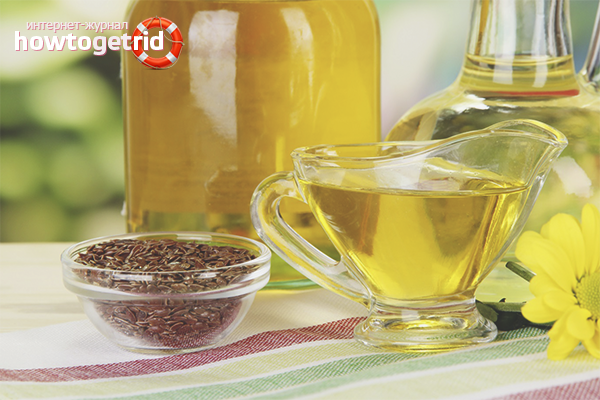



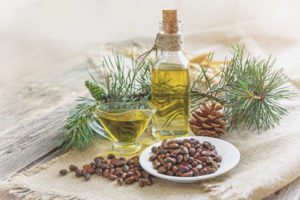



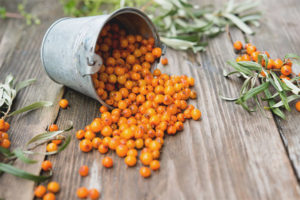

To send